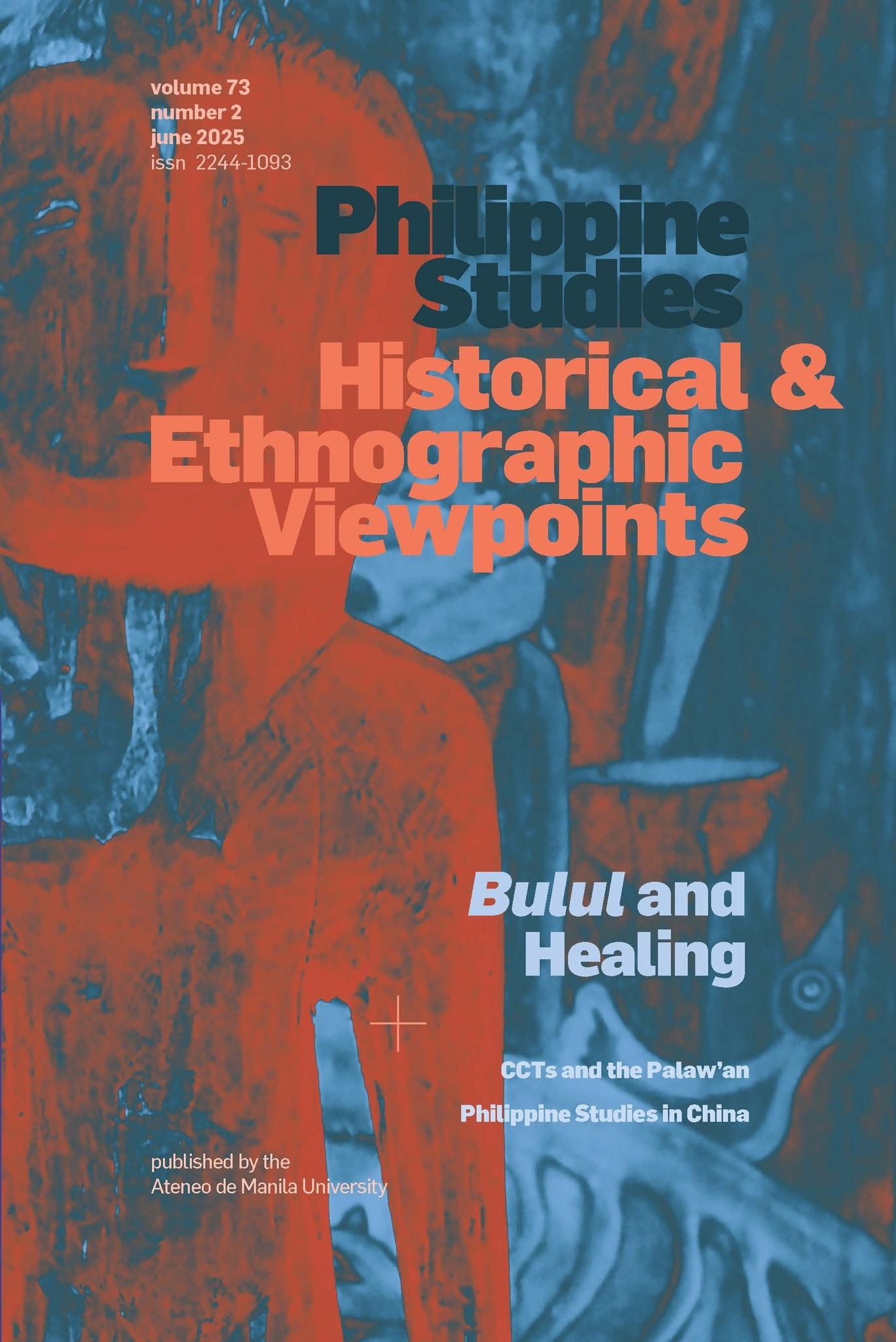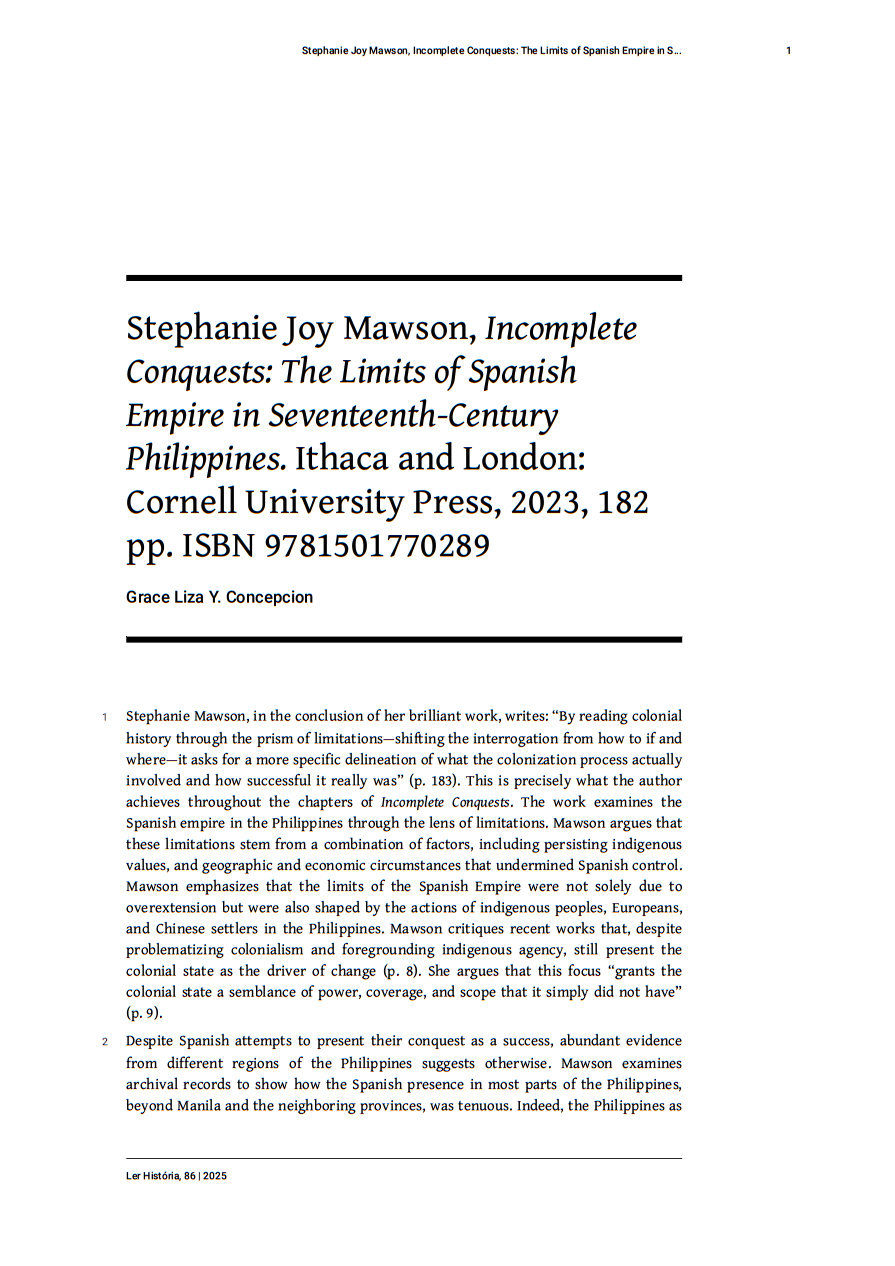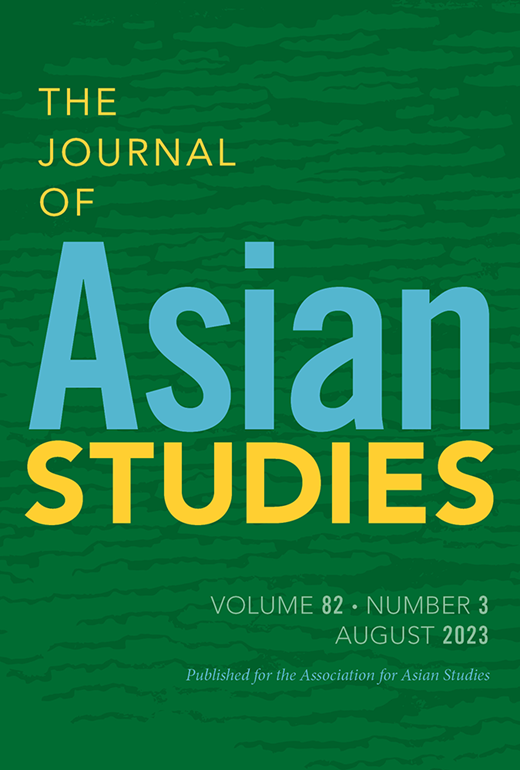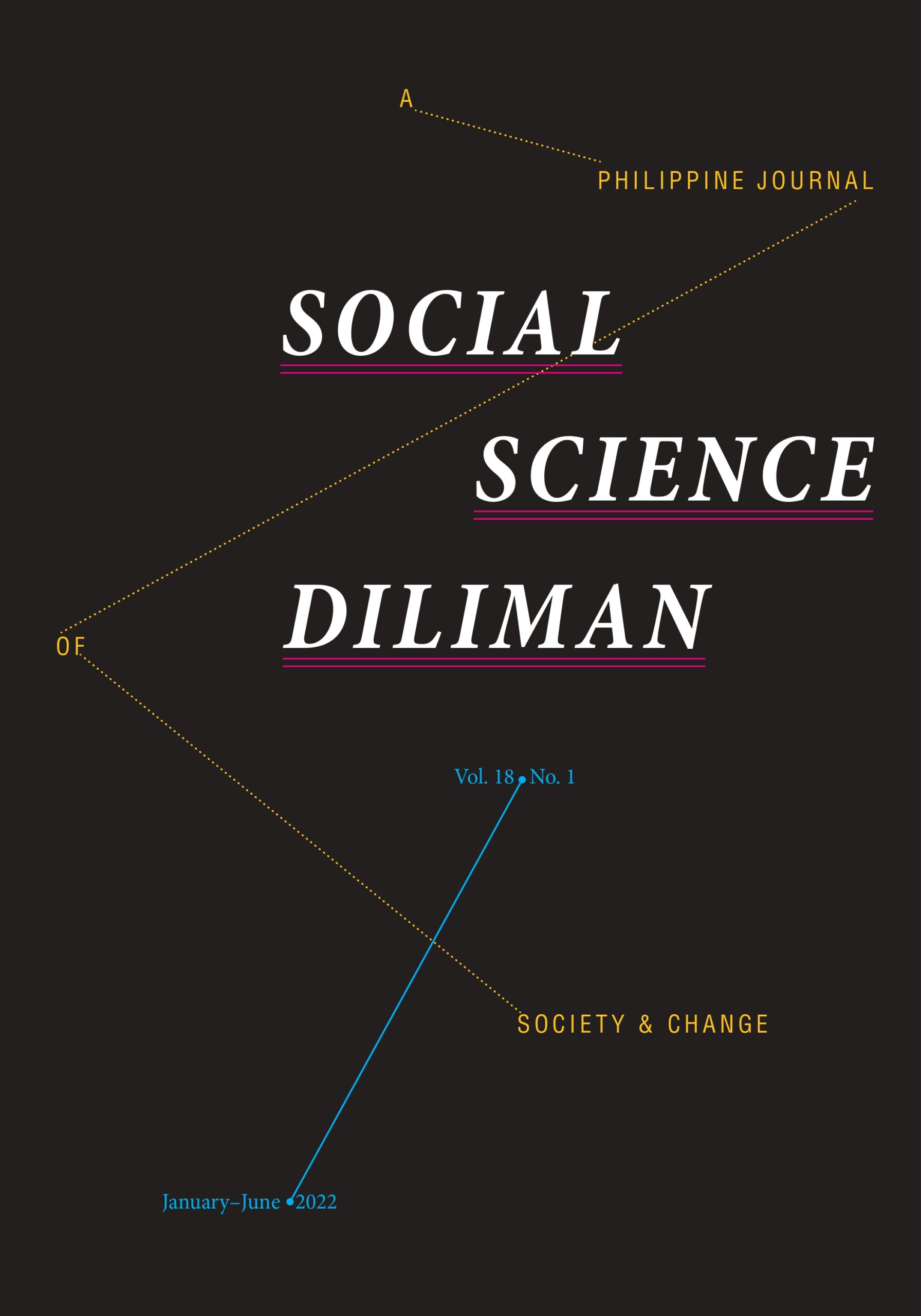Publications

Review of James Francis Warren's Typhoons: Climate, Society, and History in the Philippines
"Environmental history in the Philippines is a relatively new field, gaining traction only in the late 1990s, despite its roots as a subdiscipline in the United States since the 1950s. Pioneering studies by Filipinos have addressed topics such as American imperialism and ancestral lands (Reyes-Boquiren 1999), forestry (Orillos-Juan 1999; De Leon-Bolinao 2005), and pestilence (Dery 2006; Dela Cruz 2006; Orillos-Juan 2006). Research typically focuses on specific events and locations, exemplified by Raymund Abejo’s (2005) article “Mga Kalamidad at ang Rebelyong Dios-Dios sa Samar Noong Dantaon” (Calamities and the Dios-Dios Rebellion in Nineteenth-Century Samar). James Francis Warren’s latest book, Typhoons: Climate, Society, and History in the Philippines, expands this field of study by examining the profound effects of typhoons in various Philippine provinces over five centuries..."

Review of Stephanie Joy Mawson's Incomplete Conquests: The Limits of Spanish Empire in Seventeenth-Century Philippines
"Stephanie Mawson, in the conclusion of her brilliant work, writes: “By reading colonial history through the prism of limitations—shifting the interrogation from how to if and where—it asks for a more specific delineation of what the colonization process actually involved and how successful it really was” (p. 183). This is precisely what the author achieves throughout the chapters of Incomplete Conquests. The work examines the Spanish empire in the Philippines through the lens of limitations. Mawson argues that these limitations stem from a combination of factors, including persisting indigenous values, and geographic and economic circumstances that undermined Spanish control. Mawson emphasizes that the limits of the Spanish Empire were not solely due to overextension but were also shaped by the actions of indigenous peoples, Europeans, and Chinese settlers in the Philippines. Mawson critiques recent works that, despite problematizing colonialism and foregrounding indigenous agency, still present the colonial state as the driver of change (p. 8). She argues that this focus “grants the colonial state a semblance of power, coverage, and scope that it simply did not have” (p. 9)..."

"Luzon's Once Extensive Railways." Review of The Colonial Iron Horse: Railroads and Regional Development in the Philippines, 1875-1935"
The Philippines’ experience with rail transport may be characterized as one that is riddled with underappreciation towards the latter. Nevertheless, Arturo G. Corpuz has proven in his book, The Colonial Iron Horse: Railroads and Regional Development in the Philippines, 1875–1935 (1999), that a diligent look at repositories both in the Philippines and abroad allows the reconstruction of the still-nascent subject of the history of rail transportation in the Philippines. Corpuz shows in The Colonial Iron Horse that beyond simply moving people and freight, Luzon’s once extensive railways were also a significant factor in the development of its towns in the period straddling the latter part of the Spanish colonial period to the beginning of the Commonwealth period. Despite Corpuz not being a trained historian, The Colonial Iron Horse has remained an unparalleled work in Philippine railway history. Beyond documenting Luzon’s formerly extensive railway system and discussing its role in shaping the historical trajectories of different places, Corpuz’ work is also a useful guide book in our presently transport crisis-laden cities illustrating that transportation infrastructure should always take into account local realities for it to be efficient, economical, and beneficial.
colonial iron horse
railways
railway history
regional development
Luzon

The Makapili, Other Paramilitary Groups, and Filipino Informers During the Japanese Occupation of the Philippines
Javier Leonardo V. Rugeria
The existing historiography on the Japanese Occupation of the Philippines is replete with studies on the resistance movements, both the organized forces and the guerrilla units who fought the Japanese. Written by Filipino and foreign scholars alike, these studies have underscored the heroism of countless military men and
guerrillas who came from all walks of life. What has been often overlooked and has yet to receive the same scholarly attention is the underside of the war: Filipino collaboration. While political collaborators-figures in the government such as Jose P. Laurel and Jorge Vargas-have been well documented (see Steinberg 1967; Agoncillo 1984; De Viana 2016; Satoshi 2012), paramilitary collaborators, or those who not only took the Japanese's side but also took up arms against pro-American Filipinos and Filipino guerrillas, remain obscure. It is imperative that these narratives be also brought to light to uncover the disturbing truths and realities of the war. Without an adequate understanding of these paramilitary groups and informers, our purview of the Japanese occupation period remains myopic.
guerrillas who came from all walks of life. What has been often overlooked and has yet to receive the same scholarly attention is the underside of the war: Filipino collaboration. While political collaborators-figures in the government such as Jose P. Laurel and Jorge Vargas-have been well documented (see Steinberg 1967; Agoncillo 1984; De Viana 2016; Satoshi 2012), paramilitary collaborators, or those who not only took the Japanese's side but also took up arms against pro-American Filipinos and Filipino guerrillas, remain obscure. It is imperative that these narratives be also brought to light to uncover the disturbing truths and realities of the war. Without an adequate understanding of these paramilitary groups and informers, our purview of the Japanese occupation period remains myopic.

Review of Nichola K. Menzies’ Ordering the Myriad Things: From Traditional Knowledge to Scientific Botany in China
Our collective wonder of plants is as old as human history. For centuries, and to this day, we continue to marvel at their beauty and bounty. The study, identification, naming, collection, cultivation, use, and trade of plants have inspired the progress of civilization: from the fertile valleys of the rivers Tigris and Euphrates and the agri- cultural revolution, Plato's heavenly plane tree (Platanus orientalis) and the essence of humanity, Guy de La Brosses Jardin du Roi and its botanical cures, the quest for spices and the course of world history, Gregor Mendel and modern genetics, Louise Glück's "Wild Iris" and the universal quality of her poetry (1993), to Daniel Chamov- itz's lives of plants (2012)-these are only some of the varied examples that highlight
the entwined histories of plants and humankind across time and space.
the entwined histories of plants and humankind across time and space.

Review of Raniela Evangelista Barbaza's An Orosipon kan Bikolnon: Interrupting the Philippine Nation
My reading of this book was interrupted by two conferences, a typhoon disaster, and hours of household chores. Needless to say are the moments when I had to stop after reading a few lines of Barbaza's phenomenological explication on the metaphysics of literary traditions and nation-building. These instances of pagsabat against my own hearing-speaking with the book, I recently learned, may not only be confined within the semantic field of the Tagalog sabat, that is, indicative precisely of speech, because in Bikol, where the pasture of meanings is larger, sabat is "to meet someone, to welcome, to encounter, to run or bump into someone unexpectedly, to row against
the current, to go against the grain, to stand up to or face up to someone" (Mintz & Britanico 1985,
458).
the current, to go against the grain, to stand up to or face up to someone" (Mintz & Britanico 1985,
458).

Review of Vicente L. Rafael’s The Sovereign Trickster: Death and Laughter in the Age of Duterte
The Sovereign Trickster: Death and Laughter in the Age of Duterte offers an investigation of President Rodrigo Roa Duterte’s regime of fear which weaponizes death to control life and masks violence through his obscene and vulgar articulations. It is an interrogation of the machinations of the sovereign, a political strongman, in relation to the governed. The book also examines how Duterte’s surge to power was contingent on the Philippines’ history of electoral violence and its people’s neocolonial condition by using Michel Foucault’s “biopolitics” and Achille Mbembe’s “necropolitics” as analytic lenses.
| Title | Journal | Faculty Involved | Keywords | Year |
|---|---|---|---|---|
| Review of James Francis Warren's Typhoons: Climate, Society, and History in the Philippines | Philippine Studies: Historical & Ethnographic Viewpoints | Ma. Luisa De Leon-Bolinao, Ph.D. | 2025 | |
| Review of Stephanie Joy Mawson's Incomplete Conquests: The Limits of Spanish Empire in Seventeenth-Century Philippines | Ler História | Grace Liza Y. Concepcion, Ph.D. | 2025 | |
| "Luzon's Once Extensive Railways." Review of The Colonial Iron Horse: Railroads and Regional Development in the Philippines, 1875-1935" | TALA: An Online Journal of History | Carlos Joaquin R. Tabalon | colonial iron horse, railways, railway history, regional development, Luzon | 2024 |
| The Makapili, Other Paramilitary Groups, and Filipino Informers During the Japanese Occupation of the Philippines | Saysay: The Journal of Bikol History | Javier Leonardo V. Rugeria | 2023 | |
| Review of Nichola K. Menzies’ Ordering the Myriad Things: From Traditional Knowledge to Scientific Botany in China | Journal of Asian Studies | Ma. Mercedes G. Planta, Ph.D. | 2023 | |
| Review of Raniela Evangelista Barbaza's An Orosipon kan Bikolnon: Interrupting the Philippine Nation | Saysay: The Journal of Bikol History | Emmanuel Jayson V. Bolata | 2023 | |
| Review of Vicente L. Rafael’s The Sovereign Trickster: Death and Laughter in the Age of Duterte | Social Science Diliman | Francisco Jayme Paolo A. Guiang | 2022 |


